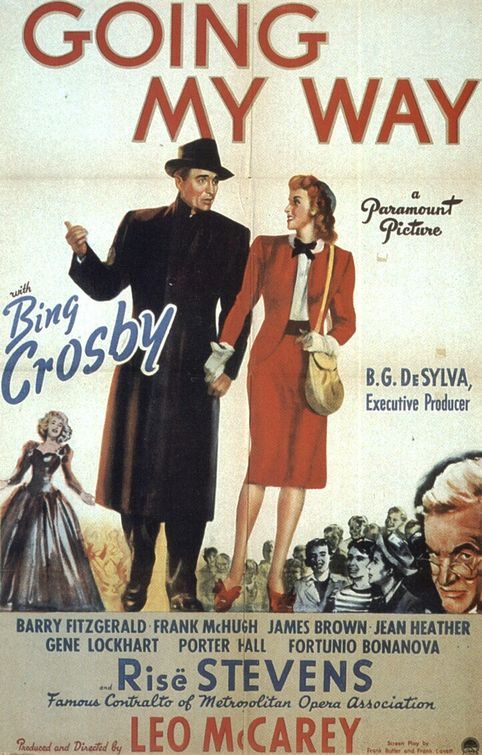
| None | Light | Moderate | Heavy | |
|---|---|---|---|---|
| Language | ||||
| Violence | ||||
| Sex | ||||
| Nudity |
Content:
Several profanities and obscenities; nudity, promiscuity and graphic sexual scenes; graphic violence; and, gambling
More Detail:
Abandoning the hatred and racial issues that permeated his last film, DO THE RIGHT THING, director-producer-writer Spike Lee focuses specifically on the life and times of Bleek Gilliam, a fictional but ambitious black jazz trumpeter, in MO’ BETTER BLUES. The trumpet player, who is on the verge of hitting the big time, is forced to choose between his trumpet and the two women he loves.
Bleek is born and reared in Brooklyn by middle-class parents who care a great deal about him. In fact, Bleek’s Mom sees that he practices his trumpet before playing with friends. Bleek becomes good, extremely good, so that by his twenties, he has his own band, poised on the verge of major success.
Now the film starts to probe Bleek’s soul. Bleek is self-centered, and doesn’t give it a second thought. He plays around with both his girlfriends, but has little room in his life for either one. Indigo, a soft-spoken elementary schoolteacher, wants a quiet life with Bleek. Clarke, an aspiring singer, also demands that Bleek make more of an effort to include her in his life, but wants her own success as well.
Bleek’s manager, Giant, and the band, the Bleek Quintet, want to enjoy success and whatever else life has to offer. The club owners are happy just to add up profits. In the end, all these lives are turned upside down, though most make something of themselves because of good friends and family, as well as talent and hard work.
Despite the creative genius displayed by Spike Lee, the film’s first half takes a little patience. Though it is rich in thoughts, moods and feelings, it is short on storytelling. There is so much dialogue one wonders where it all is heading.
Then, in the last half, the story threads are pulled taut to reveal the purpose of all that came before. Family values and the continuity of life emerge as triumphant themes that shape relationships and careers, thus bringing meaning into shallow lives. A quote from John Coltrane appears before the film credits indicating that God’s hand and purpose shows through in all things, working somehow.
The Christian movie-going public, however, does not need to see MO’ BETTER BLUES to realize that point. Much of the film has profanity, obscenity, nudity, promiscuity, and graphic sexual scenes. One scene is so violent that you will have to look away. Spike Lee, who has a reputation for shocking audiences, does not let up here, as he includes the birth of a baby that clearly shows the moment of birth.
Although the language and situations are utterly crude, there is not one false move, false word or strained plot device to break the flow of the story. The rich jazz score is persistent, insistent, incessant. It cues your moods to scenes and carries you along. You will rarely hear better. Perhaps a couple of Academy Award nominations are in order: Best Musical Score and Best Director are possibilities.
Lee, who is eager to dispel the musty mythology that previously served to ghetto-ize jazz in movies, doesn’t want MO’ BETTER BLUES thought of as simply a jazz film. Co-producer Monty Ross says, “It deals with a man’s life and incorporates jazz. The principles that it teaches about love and life are universal, and the principle is that love conquers all.”
The point that needs to be made about this man who loves his trumpet and two women but can’t have it all is not that love conquers all (for only God’s love conquers all), but that great talent demands good stewardship and a healthy awe of the Lord who gave one the talent in the first place. Bleek makes the adolescent comment that “the mo’ better makes it mo’ better,” when, in fact, only the grace of God makes life “mo’ better”. Spike’s self-indulgence in this film shows that he needs to learn this lesson.
Bleek is born and reared in Brooklyn by middle-class parents who care a great deal about him. In fact, Bleek’s Mom sees that he practices his trumpet before playing with friends. Bleek becomes good, extremely good, so that by his twenties, he has his own band, poised on the verge of major success.
Now the film starts to probe Bleek’s soul. Bleek is self-centered, and doesn’t give it a second thought. He plays around with both his girlfriends, but has little room in his life for either one. Indigo, a soft-spoken elementary schoolteacher, wants a quiet life with Bleek. Clarke, an aspiring singer, also demands that Bleek make more of an effort to include her in his life, but wants her own success as well.
Bleek’s manager, Giant, and the band, the Bleek Quintet, want to enjoy success and whatever else life has to offer. The club owners are happy just to add up profits. In the end, all these lives are turned upside down, though most make something of themselves because of good friends and family, as well as talent and hard work.
Despite the creative genius displayed by Spike Lee, the film’s first half takes a little patience. Though it is rich in thoughts, moods and feelings, it is short on storytelling. There is so much dialogue one wonders where it all is heading.
Then, in the last half, the story threads are pulled taut to reveal the purpose of all that came before. Family values and the continuity of life emerge as triumphant themes that shape relationships and careers, thus bringing meaning into shallow lives. A quote from John Coltrane appears before the film credits indicating that God’s hand and purpose shows through in all things, working somehow.
The Christian movie-going public, however, does not need to see MO’ BETTER BLUES to realize that point. Much of the film has profanity, obscenity, nudity, promiscuity, and graphic sexual scenes. One scene is so violent that you will have to look away. Spike Lee, who has a reputation for shocking audiences, does not let up here, as he includes the birth of a baby that clearly shows the moment of birth.
Although the language and situations are utterly crude, there is not one false move, false word or strained plot device to break the flow of the story. The rich jazz score is persistent, insistent, incessant. It cues your moods to scenes and carries you along. You will rarely hear better. Perhaps a couple of Academy Award nominations are in order: Best Musical Score and Best Director are possibilities.
Lee, who is eager to dispel the musty mythology that previously served to ghetto-ize jazz in movies, doesn’t want MO’ BETTER BLUES thought of as simply a jazz film. Co-producer Monty Ross says, “It deals with a man’s life and incorporates jazz. The principles that it teaches about love and life are universal, and the principle is that love conquers all.”
The point that needs to be made about this man who loves his trumpet and two women but can’t have it all is not that love conquers all (for only God’s love conquers all), but that great talent demands good stewardship and a healthy awe of the Lord who gave one the talent in the first place. Bleek makes the adolescent comment that “the mo’ better makes it mo’ better,” when, in fact, only the grace of God makes life “mo’ better”. Spike’s self-indulgence in this film shows that he needs to learn this lesson.


 - Content:
- Content: 

